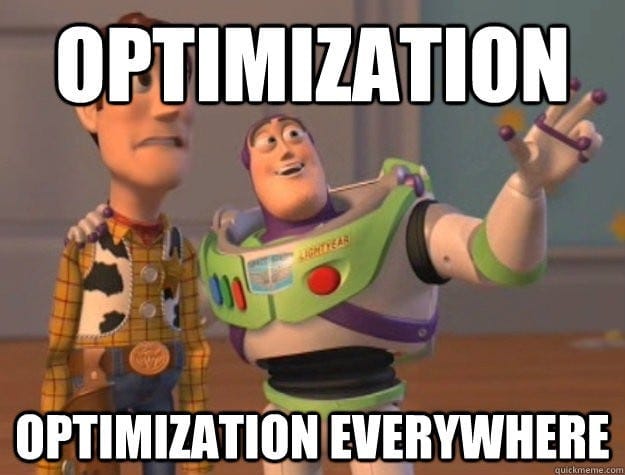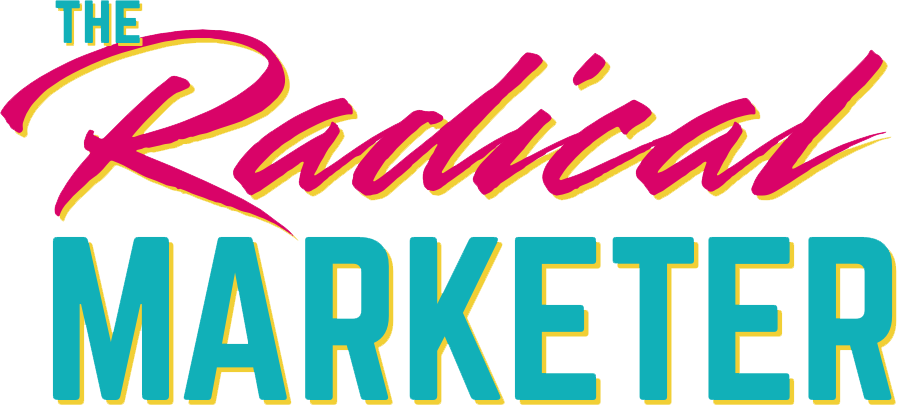ChatGPT is becoming a marketing channel and I hate it
Why AI search tools like ChatGPT and Google Gemini are going to get ruined

An org I’m on the board for was chatting about how some recent new members had found us (something every org should check on regularly, by the way).
The results were pretty straightforward… except for the one who told us they’d found us via ChatGPT.
I was simultaneously curious if it's a channel worth exploring, and horrified that this person basically burned through at least a bathtub's worth of water in order to find us. 😆😩
The truth of it is that people have been using tools like ChatGPT and Google Gemini to find things they’re looking for – and that means businesses are starting to ask, “how do we optimize for that?”
Do you even NEED to optimize for it, though? Maybe yes, maybe no.
How does AI decide when to recommend a brand?
In short: AI analyzes data from reviews, certifications, articles written by "experts" (a.k.a. giant media conglomerates) featuring your brand, and any information it deems “credible.”
The upside? I have to admit, it can be a fast and effective way to find what you’re looking for, down to very specific criteria.
The downside–aside from the awful environmental impacts–is that it can end up sidelining small businesses and orgs, who probably haven’t been featured in Forbes in recent memory. It may also skip out on more niche information, because bigger outlets haven’t been talking about it.
AI search just may not work in your favor, if you’re a smaller org. And yet, the landscape may not be that much worse, in the grand scheme: for the past four years, website traffic and click-throughs have been dropping, across the board.
Some might say that AI’s newfound prominence is to blame for that. But me? I blame SEO.
Optimization broke search
People have been obsessed with ranking higher in searches for YEARS. Being on page 1 of Google was the sign that you’d arrived, and that your SEO was perfectly dialed in.
Here’s the thing, though: search was never intended to be something you could optimize for. In Google’s ideal world, search results would be utterly unbiased, and only the most relevant results would land on page 1.
As Search Engine Optimization gained its footing, more and more websites tried to optimize for search. Then, Google had to change its algorithm to try and root out those SEO tactics, and make search results more relevant again. This is why so many of the old SEO tricks don’t work anymore.
Repeat that cycle dozens more times, and you end up where we are now: with search results dominated by “optimized” content that’s technically relevant, but doesn’t actually tell you much of anything useful. It’s no wonder people are loudly complaining that “search is broken.”
And now, AI has stepped in to seemingly sift through the digital noise and find what we’re looking for. And, for the time being, some audiences may start to shy away from the traditional search methods.
But, what happens once businesses start optimizing for AI? Will we repeat the cycle of optimizers and algorithm coders trying to outwit each other, until AI also becomes useless?
Honestly, there’s ample evidence that AI isn’t as smart as big tech would like us to think it is. Some researchers have even compared the belief in LLMs' "intelligence" to the effect of "psychics" who con their audiences with cold reading. I suspect it’ll be easier to break a lot of these AI bots than it was to break Google search.
So, hey, I’m calling it now: AI search is going to break within the next decade – if not way sooner.
As for optimizing for AI search? I have enough issues with the ethics of AI that I’m not going to. If you choose to go that route, however, keep a very close eye on the effort you put in, versus the results that you get in return. And, you can almost certainly expect diminishing returns as time goes on.
Until next time,
--Sarah
Did you enjoy this article? Fuel my radical energies and buy me a snack:
1. Subscribe to The Radical Marketer.
You'll get musings on how to deal with online marketing and tech more radically and ethically, free to your inbox, every Tuesday. And, you'll get handy bonuses if you become a paid subscriber. Choose your tier here.
2. Get the Simplify + Sell Website Planner.
Our Website Planner takes the confusion out of what to say and where to say it on your website, so you can book more clients whether you DIY or hire a pro. Get your copy of the planner.
3. Book Your Consultation with Team Upswept.
We didn't come to play! We deliver the full meal deal for your done-for-you online marketing needs, whether it's website, social, or email, or all three. Go get on our calendar!
